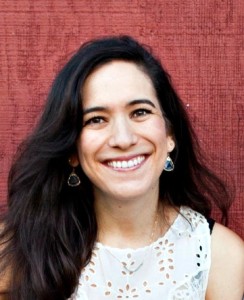- Calls to this hotline are currently being directed to Within Health or Eating Disorder Solutions
- Representatives are standing by 24/7 to help answer your questions
- All calls are confidential and HIPAA compliant
- There is no obligation or cost to call
- Eating Disorder Hope does not receive any commissions or fees dependent upon which provider you select
- Additional treatment providers are located on our directory or samhsa.gov
Body Image: How It Affects Middle-Aged Women
With staggering statistics pointing to the number of adolescent women struggling with eating disorders, poor body image, and low self-esteem, middle-aged women can easily fall to the wayside in the struggle for recovery and wellness.
It is sometimes forgotten that children become adolescents, adolescents become adults, and in the crossroads of life, an eating disorder can be sustained for years if never addressed. Mistakenly conceived is the notion that time heals all wounds. To the little girl who suffered greatly, whose dignity was stripped, who was shamed at the hands of bullies, who endured ridicule.
We Bottle Things Up, but That Hurts Us in the End
The little girl who carried her wounds, who move onward in her life in spite of her setbacks, who blossomed into a woman and matured with age. As a society, we are taught to conceal our pain, to focus on the outward adornment of our bodies and not the aching heart within. And though that woman has aged into maturity, those wounds of early childhood are ever present.
Though those insecurities may be kept at bay throughout the many seasons of life, there are occasions that rear the ugly head of buried pain. There are many life difficulties that women may encounter during their middle-aged years, including:
- Divorce
- Empty-nests as grown children leave home
- Caring for aging parents
- Illnesses
- Re-locations
- Career Changes

A research study published in The Journal of Women and Aging found that the majority of women aged 50 and older are not satisfied with the way they look, with only 12% of participants sampled reporting body image satisfaction [1].
Middle-aged women who participated in this study cited their main areas of concern of their body that caused the most dissatisfaction, including their skin (80%), their stomachs (56%), and their faces (54%) [1].
Interestingly, this survey also found that women who did express body dissatisfaction also reported fewer eating disorder symptoms.
Bad Timing Can Cause a Relapse in Body Image
Those insecurities may rise again during periods of vulnerability. If healing was not sought to adequately address the pains from years ago, they will continue to fester for years to come. And the little girl who once felt ashamed of her body or unsure of her place in the world may find that she is still unable to accept or love herself in the later years of her life.
The beauty about our body image is that it is directly reflective of something greater at work in us. If you find yourself being overly critical of your appearance, this is likely indicative of a deeper issue that is begging for resolve and healing within. Because of the many years of concealing fear and doubt, wounds can be manifested as self-hatred, as body degradation.
And it may seem impossible, after so many years of struggling with poor body image, to find peace within yourself. Delving deep into pains from the past is a difficult process that many will find difficult to endure. However, as you find the courage and strength to work through each tragedy or memory or wrong-doing, you will come into the realization that this has not in fact been about your body.
Loving Yourself Is A Journey, and Can Start at Anytime
As you heal, you will understand the beauty of the vessel of your body that has carried you thus far in your life, that has loved and been loved. No matter where you are in your life, you are never too far from beginning a journey of healing and recovery.
There is hope in knowing that today can mark the start of making peace with yourself and your body. If you are a middle-aged woman feeling lost in the throes of life and body shaming, it is not too late for you to overcome the challenges you may be facing. Seek the counsel of a health professional today, who can help guide you through the process of healing and overcoming poor body image.

Working with a counselor or therapist who is specialized in body image can help you understand the root of the issues at hand, as well as assess whether there are any other factors involved that should also be addressed with professional treatment. Professional support can be the key in helping you change negative behaviors and beliefs about your body.
Your life is valuable, and it is time for you to understand the depth of your worth and beauty.

Crystal is a Masters-level Registered Dietitian Nutritionist (RDN) with a specialty focus in eating disorders, maternal/child health and wellness, and intuitive eating. Combining clinical experience with a love of social media and writing. As a Certified Intuitive Eating Counselor, Crystal has dedicated her career to helping others establish a healthy relationship with food and body through her work with EDH and nutrition private practice.
References:
[1]: Medical News Today, “Body Image Satisfaction in Middle-Aged Women”, http://www.medicalnewstoday.com/articles/267531.php Accessed 12 June 2017[2]: National Eating Disorders Collaboration, “What is Body Image?”, http://www.nedc.com.au/body-image Accessed 12 June 2017
The opinions and views of our guest contributors are shared to provide a broad perspective of eating disorders. These are not necessarily the views of Eating Disorder Hope, but an effort to offer discussion of various issues by different concerned individuals.
We at Eating Disorder Hope understand that eating disorders result from a combination of environmental and genetic factors. If you or a loved one are suffering from an eating disorder, please know that there is hope for you, and seek immediate professional help.
Published on July 18, 2017.
Edited And Updated By: Crystal Karges, MS, RDN, IBCLC.
Reviewed By: Jacquelyn Ekern, MS, LPC on July 18, 2017.
Published on EatingDisorderHope.com
